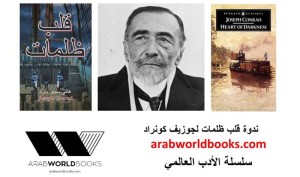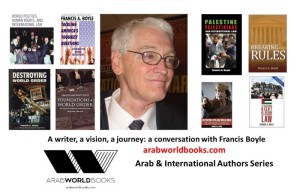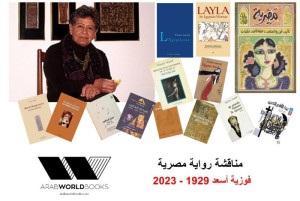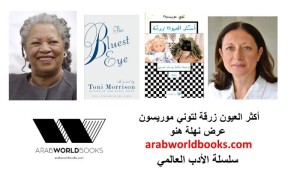Days went by as Merna, a professional translator, struggled with the translation of a poem. Seduced by Stevie Smith’s short, easy-dictioned poem, “Not Waving But Drowning”, Merna had surprisingly found herself in an unprecedented professional deadlock. Not only could she understand every word, but she could feel herself actually there in the cold water as well. That did not make translating it any easier, quite the opposite.
Nobody heard him, the dead man,
But still he lay moaning:
I was much further out than you thought
And not waving but drowning.
Poor chap, he always loved larking
And now he's dead
It must have been too cold for him his heart gave way,
They said.
Oh, no no no, it was too cold always
(Still the dead one lay moaning)
I was much too far out all my life
And not waving but drowning.
First, there was the intricacy of determining who the speaker in the poem was. There were no punctuation marks. She knew instinctively more than linguistically that there were at least three voices. How should this be translated into Arabic without violating the smoothness of the English poem? Her increasing identification with the action of the poem made her think of writing a counter poem rather than translate it. It was strange that though she had always seen herself as a carrier of ideas from one mind into another, she felt indisposed to carry anything now. The readers should either drown themselves to feel the cold dark sea and experience the whirlpool of alienation and death for themselves, or simply be in a corresponding state of mind. How could any translator think of translating that? How could one define pain except by comparing it to other pains? ‘Caesarean section is ten times as painful as bikini waxing’, she had heard that somewhere. What happened if the reader was a man who had never had bikini waxing, or any waxing?
Nobody heard him, the dead man,
But still he lay moaning:
I was much further out than you thought
And not waving but drowning.
The dead man lay moaning. He was able to talk! Had Smith said ‘the dying man’, that would have been possible for him to moan or whisper something. But the man was “dead” already; someone else must have said what was being said “ I was much further out than you thought”. Who was saying that? Smith? Someone on the beach, a voice in her head, perhaps?
“Merna!”
“Yes, Mum!”
“Lunch is ready and your brothers are here”
“Mum, since my brothers are here, can one of them take me to the tombs to visit dad before it gets dark?”
The mother, still in black after two years of her husband’s death, remained silent looking awkwardly at her three kids. Both brothers expressed their discomfort with going. One of them lay down on the sofa murmuring something about how tired he was. The other one looked carefully at her from top to toe and made a sour remark about the unsuitability of her clothes to the sad visit. Merna said nothing. She was never allowed to the isolated tombs unescorted. “Drug addicts and prostitutes dwell there!” her mum always said. Merna could not bring herself to beg any of her brothers or start a futile argument about clothes fit for the living or the dead. Her inherently kind brothers would reluctantly take her at the end, perhaps fuss a little in the car about the validity of visiting the dead to start with, then stand purposefully speechless in front of the family green tomb yawning. She would be too self-conscious of their bored presence that the words she had long intended to say to her father would choke in her throat. She would end up gazing at the green low tomb with the family name inscribed on it without finding any connection between what she saw in front of her, and the fact that she had been missing her dad. She would look at the adjoining tombs in different colors and sizes with family names inscribed on them and think of the whole scene as a painting of a city full of adjoining colorful dwarf houses.“Never mind Mum. I will read some Quran for him later on instead of visiting,” said Merna.
Poor chap, he always loved larking
And now he's dead
It must have been too cold for him his heart gave way,
They said.
She could not eat. She was heavily bleeding and her tummy convulsed with dull resistant pain. Her child looked at her knowingly. The little girl, Soha, knew the symptoms that had recently made her mother hardly eat. Soha assured her granny that her mother would have something later when the pain lessened. Merna turned her chair to face the television screen for the news bulletin. TV was always on those days for news channels, even during meals. The Egyptian revolution stood at a tricky crossroad, which seemed vicious to Merna. Rebellious youth had recently reoccupied Tahrir amid conflicting reactions from the people. A bright crystal moment was dimmed.
With her hand on her aching tummy, Merna thought of what appeared as her inevitable expected hysterectomy. “Relieved from the sudden gripping spasms and break-through bleedings, you will be another person after the operation. You will know a new kind of health”, her gynecologists said. Still, she could not take the decision wholeheartedly. It was just mysteriously too hurting for her to give her uterus away. This is where she could feel her child move one day. This had been the center of her tortured being all the months of her life since she was eleven. A woman! What was a woman? Her life had been spent trying to find a meaning or fit in a meaning for that controversial mould. Moulds to fit in all her life. Scientifically speaking, she was “too much” of a woman because she had greater levels of the female hormone than what women get. After the hysterectomy, would she have to start looking for a meaning for womanhood all over again? And the operating table! With a frozen stomach, she would lie down and watch doctors and nurses prepare their tools, hurry here and there paying her little attention or if they were kind enough, they would pamper her like a doll before forcing her to sleep. No one would really understand her fear. What would happen later? How would she feel? A black hole in her tummy? Her psychologist told her that her uterus was not the center of her being; that her mind and soul were. She could not be told any more truths about herself by anyone. All her life, she had been told how to feel about her body and soul; nothing of it represented her. Now, she could not know what represented her. Resentment filled her up to the throat.
Oh, no no no, it was too cold always
(Still the dead one lay moaning)
I was much too far out all my life
And not waving but drowning.
Was the man too dead always? Were we born dead? “Would you like dessert at least, Merna, dear?” “ha!” The mother put a jar of strawberry jam on the table in front of her. Signs of deep-freezing still showed on the bottom of the jar. “Your dad brought the fruits himself and helped me make the jam as usual”, the mother commented. Merna smiled as she remembered how her parents worked together in the kitchen. Her mother did not actually need help making jam but it was their quality time in the latest years, doing simple housework while chatting together. She dipped the tip of her finger and took a taste of jam into her mouth, closing her eyes as she sucked it. She spread the rather sour mashed fruits over the interiors of her mouth, careful to swallow it as slowly and as intensely as possible closing her eyes for some time as if her dad would come out of the jar or radiate into her stomach. While her seven-year-old self was coming down the stairs at dawn, enchanted by the sweet voice performing the dawn prayer, red roses folded themselves along the banister under her little plump hand. Her dad’s voice at prayer was neither exceptionally beautiful nor musical, but while he prayed, his lonely sincerity flowed and wrapped the entire house. All seemed balanced to the stout little girl sitting at the stairs and listening to her dad pray. Sometimes, he would feel her peeping presence and ask her to sit on his red praying rug to listen to one of the prophets’ stories. “So, dad, if you were ordered by God to kill me as he had ordered Abraham to kill his son Ishmael, would you do it?” little Merna asked. The dark young man in his white gelbab would draw a long breath and say, “Abraham was a strong man, a prophet. God asked him a proof suitable for his position. I am a simple person; Allah is too merciful to put me in such a test.” Little Merna would go up to her room after her dad had finished praying, tucking their roses with her hand as she went upstairs.
She wanted to have the rest of the jam jar, but thought of her brothers and did not ask for it. After lunch, Merna hurried to leave before the dark. She wanted a safe drive on the agricultural highway road back home. Thugs had been a possible threat since the mysterious revolution started. Her mother’s words hammered her head while she was shaking hands with everyone.
“Merna, don’t you think of taking the child with you to Tahrir or I’ll keep her with me! We want no troubles from her father”, her mother said.
“I only take medical needs and food, mother, for those who are endlessly crushed by the military machine and…”, seeing her mother’s face redden with what threatened to turn into an attack of high blood pressure, Merna resumed in a repressed reproaching voice “Ok. Mum.”
Having a driver that day, Merna direly needed to relax for a while and ignore the congested traffic. It was clear that the way back was to be a very long one. She never conceived why cars seemed to multiply unreasonably on the streets lately. Nothing that had to do with the semi absence or semi presence of the police officers, she thought. Every time she had to leave her suburban compound at the margins of Greater Cairo, she had felt that the whole country was in a state of an internal immigration to only God knew where. A whirlpool of ideas was clear in front of her now, threatening to devour her for the rest of her trip. She promised herself a break, and a break she should have.
She realized that she had left the translation drafts at her mum’s.
She took the small thin bluish MP4 set, which made her daughter giggle. “Mum, that was long time ago!” the child said. Merna’s brother had downloaded her favorite American songs of the eighties from the internet. She put on her big old-fashioned headphones; the ones that her daughter would refuse to look at for their size. Beside their comfortable curves outside the ears, they ensured a maximized voice and a complete immersion in the world of the small MP4. Their inflated position around the head promised a steady hold. With the small ones inside the ear, she could never be sure when they would suddenly come out betraying her to a lunatic world outside, breaking a moment of perfect illusion.
With the first song, Merna’s ear fluttered; she was thrown into the center of dancing fountain of memories. “ Da Da, ooh/ Well my friends, time has come/ To raise the roof and have some fun/ Throw away the work to be done/let the music play on..play on play on…All Night Long” Oh, Lionel Richie! That was in 1984 in the closing ceremony of the Olympic Games. Oh, the memory brought her a gush of warmth and joy. The fascinating organization, the joyful songs, sparkling lights of freedom that charmed her wide eyes fixed on the television screen, and the magic of American propaganda all filled her heart with the captivating rhythms. That time was shining like the morning sun. Her father was still alive, young and assured. Egypt had just celebrated the complete liberation of Sinai. Mubarak was a hero. Hopeful Integrity was the word for the world of fourteen-year-old Merna.
Richie’s voice was now a shy seductive call, urging her to let go of all troubles and untie all the fetters. She felt Richie in her abdomen moving her thighs, shaking her despite her attempts not to awaken her daughter or attract the driver’s attention. She wished she could engage in one dance with everybody on the road, nonetheless; raising her head, she realized that they had reached Cairo’s congested Ring Road. All sorts of vehicles were around her, behind her, and in front of her. The eighty-kilometer round-Cairo bridge turned into a two-lane-road as a final exit, and it was stuffed with various-sized vehicles halting and waiting their turn to pass. Those endless queues were three kilometer long and six lanes wide. Egypt was impatiently waiting on a circular road.
Richie’s voice and the music both raised in a frank call for dancing all night long. Sweetly captivating, the rhythms became more insatiable; whenever she surrendered to them and her inner organs throbbed, the sharp horns would trumpet “ Tata ta-tata tata ta-tata” to shake her up and remind her that she had not indulged enough yet. More was still possible. Perhaps if she were in L.A. Stadium that night, she would have taken her shoes off and danced barefoot on the damp grass. Oh, sweet and sour America!
The cars waited like throbbing engines. The numbers on the truck before her showed it was from Upper Egypt. Truck drivers usually wrote interestingly revealing mottoes on the back of their Lorries. That one had a prayer “Oum Elnour”, invoking Holy Mary to protect him in his long journey. A poster of Jesus was stuck on the truck. Merna adjusted the headphone carefully. Five- year- old Merna was sitting in Father Boutros’s lap listening to a story about a sparrow that had lost its way. His glasses and the huge silver cross on his chest sparkled as his head moved with the action in the story. His long black garment gave her a faint shiver but she was eager to know what would happen to the little sparrow. She lemon squeezed her mind to recall whether it ever found its way or remained everlastingly lost in her memories. She could not recall any religious posters on the few cars in her hometown at that time. Everyone respectfully greeted fathers and sheikhs, then. Now, people seemed all set to tear one another for being different. Merna’s head filled with a swift train of violent images for corpses. “I had not thought death had undone so many.” The sweet whirlpool of the song, this was what Merna needed to focus on, to entreat. Before the song ended, she pressed the repeat button quickly in fear.
“I should have taken that jar of jam with me. It will end up rotting in the fridge for another two years!” she whispered to herself.
Passing by wide white circles on the road, hardly visible from under the car tyres, Merna recognized them to be drawn on the ground for ex-president Mubarak’s helicopter to land within when he was launching the bridge’s latest extension. Very fond of bridges the man was. His bridges never took him anywhere except, perhaps, to himself. It was such a pity he was blind to the people; “My people humble people who expect nothing.” He was given the country as a sturdy loveable young elephant. Thirty years later, it lay on the road, old and shot wounded. Could it be saved? Could it be buried? How could you hide a corpse that huge? Unlike seeing a wounded cat or dog, the size of the elephant made its injury all the more painful. He could have made a greater country of Egypt and a greater president of himself, but obviously he was blind altogether. Merna chided herself for bringing up the word ‘blind’. She had many blind friends who usually led the way when she thought she had escorted them. She could feel her mobile phone vibrating; her husband called to speak to the child. Merna woke her up sadly and gave her the cell phone then tightly put her headphones on again.
Merna kept seeing the three white circles, the helicopter’s nest, in her inward eye for the rest of the journey. Her index finger repetitively drew invisible tight circles on her thumb. She saw the map of Egypt closed-eyed; the same map which she had practiced drawing all her life as a student or a mother. She saw the narrow green valley holding the tired serpent-like river and the infinite yellowness of the desert all around it; she saw the burning borders in the West and the dangerous ones in the East; and she saw herself shrinking gradually into a grain of the desert sand caged inside her weakness under strong old boots. Stony heaviness descended on her heart pushing her lower in the chair.
Merna believed the road never ended.
Merna wanted to leave the car altogether.
Merna did not say that the road never ended or that she wanted to leave the car. Instead, in the gloomy dim sunset light she stared at the enormously pictured banners for the parliamentary elections. They covered the poorly finished random houses that were miraculously adjacent to the bridge. Great prices had been paid to those inhabitants, she thought. Heavily bearded were many of the men pictured on the banners. For a minute, she thought she had a glimpse of father Boutros carrying a caged sparrow at the side of the road; still his long black garment gave her a shiver. Merna nervously smoothed her hair.
As she was taking off her blouse at home, her lips touched a sticky strawberry-smelling collar. She licked the collar intently spreading the sugary saliva over the interiors of her mouth. Her heart sank and she felt the dull pain in her pelvis again.
That night, Merna‘s head on the pillow crowded with distressing images. She saw a closed door in a desolated place with blood streaming from under the threshold; she was frightened that it would open revealing what was behind it and ran away to hide in the sands. The sand dune became quicksand sucking her in. Next, little Merna was walking with her father to the primary school; his warm dark hands clasped around her little cold one. Before the school gate, she pulled her hand and stretched it wide open for the daily coin allowance. He gave her none. Instead, he drew a line on the dusty ground with the toecap of his right shoe. Merna felt a light push on her back towards the line. She hesitated for a second and turned back with questioning eyes but he was gone.
In the morning, Merna remained in bed for a long time drawing invisible circles on her thumb. She knew she was not going to give her body as a sacrifice to the god of the operating room until her very life was on an edge. The temporary separation from her husband was another maneuver too. In the end, she would have to face it all. Her marriage was like a blocked artery that needed a therapeutic catheter. She feared her heart was weary enough to fail this procedure; it might threaten her with an open-heart surgery. An absorbing medical atmosphere enveloped her as she walked to the fridge for a glass of milk; she could already feel her stomach freeze with the nauseating strange smells of the cold operating room. For a long time she watched the ceiling fan slowly spin around powered by the air coming from the kitchen window and her daughter color a sheet on the kitchen table; a piece of her father. She was not deceived by the child’s pregnant silence; she knew Soha had pushed all the questions underneath. Merna was only trying to find the whereabouts of her sinking heart before talking to her kid. Soha looked at her mother warmly and gave her a squeezing hug. Then, she handed the tearful woman a few coloring pencils to help her finish drawing as if she had not seen the streaming eyes. After a long silence, Merna looked at her daughter and said, “Soha dear, would you like to come with me to Tahrir Square?”
The Last Jar of Home-made Strawberry Jam
By: Mona Namoury - on: Thursday 16 November 2017 - Genre: Stories
Upcoming Events

Joseph Conrad's Heart of Darkness Discussion
April 27, 2024
Join us for a special discussion of Joseph Conrad&...

A writer, a vision, a journey: a conversation with Francis Boyle
February 24, 2024
This event took place on 24 February 2024 Yo...

Discussion of Fawzia Assaad’s An Egyptian Woman
November 25, 2023
In celebration of the life and outstanding achieve...

Toni Morrison's The Bluest Eye, A Presentation and Discussion
October 28, 2023
This presentation and discussion of Toni Morrison&...
